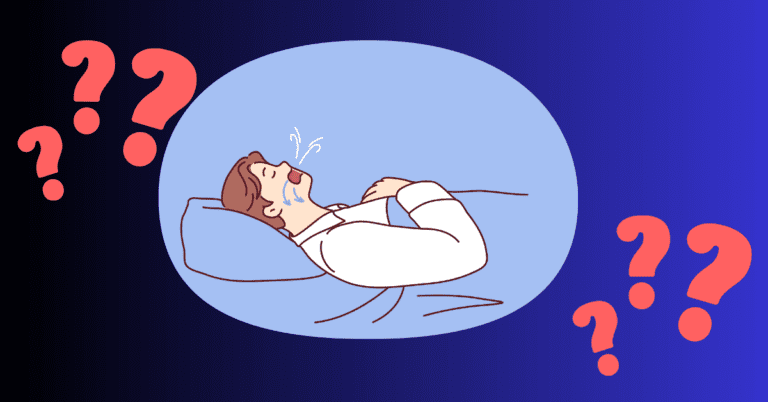How to Stop Snoring: A Comprehensive Guide to Better Sleep
Jeremy Smith is a long-term CPAP user and sleep apnea advocate. After being diagnosed with severe obstructive sleep apnea, he created ByJeremySmith.com to help others navigate CPAP therapy through personal stories, gear reviews, and practical advice.
Snoring can affect not only your sleep quality but also that of your partner.
This common issue can be caused by various factors, from lifestyle habits to underlying health conditions.

If you’re wondering how to stop snoring, you’re in the right place!
I snore really badly, and I always have. But it wasn’t until about 10 years ago that I was diagnosed with sleep apnea.
In this guide, I’ve put together some tips to help reduce or eliminate snoring for restful, rejuvenating sleep.
Understanding the Causes of Snoring
Knowing why you snore is the first step toward finding the right solution.
Snoring happens when air flows through relaxed tissues in your throat, causing vibrations. Here are some common reasons people snore:
1. Sleep Apnea
Obstructive sleep apnea (OSA) is a significant cause of chronic snoring. In this condition, the airway becomes blocked during sleep, often due to soft tissue collapse, leading to repeated pauses in breathing.
This is the condition I suffer from. To alleviate this, I have a CPAP machine, which has literally turned my life around.,
2. Nasal Congestion or Allergies
Nasal blockage from allergies, colds, or sinus infections restricts airflow, causing you to breathe through your mouth. Mouth breathing during sleep can lead to snoring.
3. Sleeping Position
Sleeping on your back causes your tongue and soft palate to fall backward, blocking the airway and leading to increased snoring.
4. Alcohol Consumption
Alcohol relaxes the throat muscles excessively, which can increase snoring. Drinking close to bedtime often intensifies the problem.
5. Obesity or Extra Weight
Extra weight, particularly around the neck, adds pressure to the airway, narrowing it and increasing the likelihood of snoring.
Effective Ways to Stop Snoring
Once you’ve identified possible causes, you can take targeted steps to reduce or stop snoring. Here are some proven solutions:
1. Adjust Your Sleeping Position
Sleeping on your side can significantly reduce snoring.
When you sleep on your back, gravity pulls your tongue and soft palate toward the back of your throat, partially obstructing airflow.
A body or wedge pillow can help keep you on your side.
Tip: Use a Snoring Pillow
Specialized anti-snoring pillows are designed to keep your head and neck in an optimal position for open airways, reducing the chance of snoring.
2. Lose Excess Weight
If you’re carrying extra weight, especially around your neck, it could be narrowing your airway and causing snoring.
Losing even a small amount of weight can help reduce the intensity of snoring. Pairing a healthy diet with regular exercise can help with snoring and improve overall sleep quality.
3. Limit Alcohol and Sedatives
Both alcohol and sedative medications relax the muscles in your throat, making it more likely for tissues to obstruct airflow.

Try to avoid alcohol and sedatives at least 2-3 hours before bed to minimize snoring.
4. Establish a Regular Sleep Routine
Poor sleep habits can also lead to snoring. By creating a consistent sleep schedule and routine, your body will fall into a natural rhythm, allowing your throat muscles to stay stronger and more stable during the night.
5. Address Nasal Congestion
If nasal congestion is causing you to snore, there are various ways to clear your nasal passages:
- Use a Humidifier: Dry air can irritate the nasal passages, leading to snoring. Running a humidifier at night helps keep your airways moist.
- Try Nasal Strips: These over-the-counter strips open up the nasal passages and improve airflow, significantly reducing snoring.
- Practice Nasal Irrigation: Rinsing your nasal passages with a saline solution can clear out any blockages caused by allergies or infections.
6. Use an Anti-Snoring Mouthpiece
An anti-snoring mouthpiece, or a mandibular advancement device, works by pushing your lower jaw slightly forward, helping keep your airway open.
These are available over-the-counter, but a custom-fitted device from a dentist is often more comfortable and practical.
7. Quit Smoking
Smoking irritates and inflames the airways, increasing the likelihood of snoring. Quitting smoking is beneficial for reducing snoring and improving overall respiratory health.
8. Consider Continuous Positive Airway Pressure (CPAP) for Sleep Apnea
For those with sleep apnea, a CPAP machine can be a game-changer. CPAP therapy involves wearing a mask connected to a machine that delivers steady air pressure to keep your airways open while you sleep.
This solution is especially effective for those diagnosed with obstructive sleep apnea.
9. Strengthen Throat Muscles
Exercises that target the throat muscles can reduce snoring. Simple activities, such as singing or pronouncing certain vowel sounds repeatedly, help tone the muscles in your throat and soft palate.
Sample Exercises to Stop Snoring
- Repeat Vowel Sounds: Saying “A-E-I-O-U” aloud for a few minutes each day strengthens the muscles around the airway.
- Tongue Exercises: To build tongue strength, place your tongue behind your top front teeth and slide it backward. Repeat this motion for several minutes daily.
Medical Treatments for Chronic Snoring
If lifestyle changes don’t reduce snoring, or if snoring is impacting your sleep quality and health, consult a doctor. There are various medical treatments for chronic snoring:
1. Uvulopalatopharyngoplasty (UPPP)
This UPPP surgical procedure removes tissue from the throat to widen the airway. It’s typically recommended for severe snoring or sleep apnea cases that don’t respond to other treatments.
2. Somnoplasty
Somnoplasty is a minimally invasive surgery that uses radiofrequency to shrink soft palate and tongue tissues to reduce snoring.
This outpatient procedure has a shorter recovery time than traditional surgery.
3. Pillar Procedure
During the pillar procedure, small implants are placed in the soft palate to stiffen it, reducing vibrations and the resulting snoring.
This procedure is quick and requires minimal recovery time, and it can be an effective solution for moderate snoring.
Tips for Partner Support
For those sharing a bed with a snorer, sleep can be challenging. Here are a few tips for partners of people who snore:
- Use Earplugs or White Noise: A white noise machine can mask the sound of snoring, while earplugs offer direct noise-blocking.
- Establish a Bedtime Routine: Encouraging your partner to follow a routine can significantly reduce snoring.
- Encourage Treatment: Gently urging your partner to seek medical advice or explore lifestyle changes can lead to a better night’s sleep for both of you.
Final Thoughts
If you’re struggling to stop snoring, the good news is that there are many options available, from simple lifestyle adjustments to specialized medical treatments.
The right solution often depends on the root cause of your snoring, so it may take some trial and error.
Addressing snoring is about more than getting better rest; it’s also about improving overall health and well-being.
For more resources on CPAP therapy, nasal care, or sleep health, check out my additional guides and articles at byjeremysmith.com. Here’s to snore-free nights and better sleep!
Disclaimer: The content on this blog is for informational and educational purposes only and is not a substitute for professional medical advice. Always speak with your doctor or sleep specialist before starting, stopping, or changing any treatment or therapy related to sleep apnea or CPAP use.





